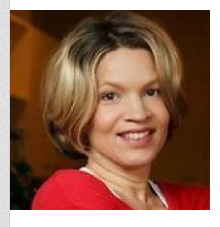Date of MSc: 1997/98
Msc Project Title:
Developing and Testing a New Taxonomy for Violations
Pre MSC Background:
A diploma in journalism and a Bsc in Applied Psychology
Pre MSc View of HCI/Cognitive Ergonomics –
During my course in Applied Psychology, I had become exposed to the limitations of human performance and its application to everyday life. I became very interested and started to see error producing conditions everywhere I looked. As a motorcyclist, I became very interested in the reasons why people could not see bikes in traffic. I did my third year research piece on the “looked but failed to see error” in road safety Ergonomics with Prof Graham Hole and Martin Langaham at Sussex University and found it really facinating. I didn’t really know anything about HCI except that there were scholarships being offered on the UCL course for Ergonomics and HCI with Ergonomics . There were more scholarships on offer for the HCI course so I applied for that course and was very surprised to get one, considering I knew nothing about computer science.
Post MSc View of HCI/Cognitive Ergonomics
I came away from the course having felt my eyes had been opened to a world designed by humans but without the interests and needs of other humans in mind, which was baffling. Why wouldn’t the world have developed a user-centred approach by now given that everything ultimately has an end user it needs to satisfy? I naively thought that that the world would be eager to embrace this approach once they knew about it. I also thought that in 10 years there would be no need for Ergonomists because everyone would have adopted this approach anyway. However, 20 years on, the work has not dried up.
Subsequent – to MSc View of HCI Ergonomics:
It has occurred to me over the years that since the principles of Ergonomics are so profoundly sensible, then our slightly lacklustre progress as a discipline must be something to do with the people in it, as much as the world we operate in. Ergonomists and Human Factors specialists have spent a lot of time arguing amongst ourselves about what we should be doing or even what we should call ourselves, and maybe not enough time convincing other people of our worth. Having said that I have spend the last 9 years overseas , mostly in Australia, where there are no courses, which offer the exceptional exposure to Ergonomics that I got through this Msc Course and where such ideas are still in their infancy compared to the UK and USA.
Additional Reflections:
The course was so varied in the topics it covered, that in the beginning I struggled to put all the new ideas into any form of context that held it all together. I could not describe what Ergonomics or Human Factors was when asked. Then one day it sort of clicked and fell into place for me . It wasn’t one thing – it was many things – a truly multi-disciplinary approach but the goal was always the same : making some human endeavour better in some way. You could use any valid method from many disciplines (Engineering, Psychology, Risk Management, Design etc) as long as it was working towards this one legitimate purpose.
I now teach Human Factors to first year aviation business students and I make sure I spend a lot of time setting out the context in the first few lectures. We ask them to think about improving some simple human task in their everyday lives before introducing any theory or methods. Mainly I tell them it’s about making life better for humans , whether it’s through improving tasks, efficiency, satisfaction, or safety. Hopefully, they take that enlightened view back into the aviation industry.
Since completing the course , I have used the skills I acquired on this course in a number of different settings. I started off in a risk management consultancy, then specialised in the transport sector. Since then I have worked as a Human Factors/Ergonomist in the UK rail industry and in Australia. ( I was granted an Australian emigration Visa on the basis of my specialist and rare skills)
I’m now the Manager Human Risk for Qantas and finishing a Phd in Aviation Human Factors research at the University of New South Wales in Sydney. Sometimes I still struggle to explain what I do to the uninitiated, because its hard to summarise . My 4-year old asked me what my job was recently. I told her my job is to make stuff better and safer for people. She seemed happy with that. As a career choice HF/ Ergonomics so far I have been happy with that too. Who knows, maybe it will even catch on.
